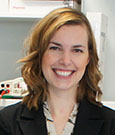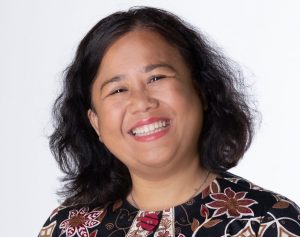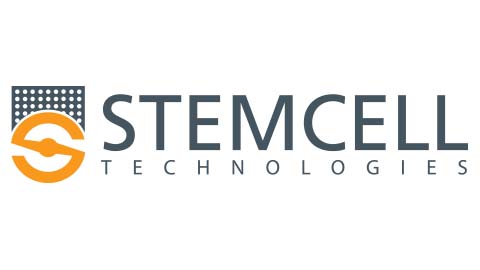
David Attwell
University College London
UK
EMBO Workshop
Abstract submissions for oral presentations are no longer possible.
EMBL is committed to sharing research advances and sustaining scientific interaction throughout the coronavirus pandemic. We are delighted to announce that this conference is going virtual and invite you to join us online.
This workshop will highlight the many important functions of microglia to nervous system physiology and function, the newest and most exciting literature and will bring together researchers using state-of-the-art imaging, genomics and molecular biology to study these enigmatic cells.
Microglia are a resident macrophage of the central nervous system at the intersection of immunology and neuroscience. They have gained increasingly more attention over the past decade as more research shows that they are key contributors to neural circuit development and function. There is also increasing evidence that microglia are important in the etiology of many nervous system diseases.

University College London
UK

University of Zurich
Switzerland

The University of Edinburgh
UK

University of Lausanne
Switzerland

Achucarro Basque Center for Neuroscience
Spain

Boston Children’s Hospital
USA

Institut de Biologie de l’École Normale Supérieure
France

Singapore Immunology Network
Singapore

University of Massachusetts Medical School
USA

EMBL Heidelberg
Germany

EMBL Heidelberg
Germany
Got something to say? Tweet it! #EMBOMicroglia
All times in the programme below are shown as the time in Europe/Berlin.
To find out the equivalent time zone in your location, enter Berlin, the programme time and date along with your city into the Time Zone Converter.
| Time (Europe/Berlin) | Speaker |
|---|---|
| 13:00-13:45 | Social programme: speed networking |
| 14:00-14:10 | Opening remarks AVAILABLE ON DEMAND AFTER LIVE STREAM |
| Session 1 – Microglia ontogeny Chairs: Burkhard Becher and Florent Ginhoux | |
| 14:10-14:40 | Keynote lecture: Microglia and immunity: Are microglia immune ‘relevant’ cells? A personal journey of doubt, enlightment and more doubt Burkhard Becher – University of Zurich, Switzerland AVAILABLE ON DEMAND AFTER LIVE STREAM |
| 14:40-15:00 | Human fetal microglia acquire homeostatic immune-sensing properties early in development Laura Kracht – University Medical Center Groningen, The Netherlands AVAILABLE ON DEMAND AFTER LIVE STREAM |
| 15:00-15:20 | Microglia are required for embryonic brain integrity Akindé Lawrence – Institut de Biologie de l’École normale supérieure (IBENS), France AVAILABLE ON DEMAND AFTER LIVE STREAM |
| 15:20-15:35 | Break |
| 15:35-15:55 | In situ and transcriptomic identification of microglia in synapse rich regions of the developing zebrafish brain Nick Silva – University of California, San Francisco, United States of America AVAILABLE ON DEMAND AFTER LIVE STREAM |
| 15:55-16:15 | Stem-cell-derived human microglia transplanted in mouse brain to study human disease Nicola Fattorelli – VIB-KU Leuven, Belgium AVAILABLE ON DEMAND AFTER LIVE STREAM |
| 16:15-16:30 | Poster flash talk presentations 1 by: 1. Aysha María Bhojwani Cabrera – Instituto de Neurociencias (CSIC-UMH), Spain 2. Joseph Ogochukwu Uweru – University of Virginia, United States of America 3. Poulomi Banerjee – UK Dementia Research Institute, University of Edinburgh, United Kingdom 4. Annie Ciernia – The University of British Columbia, Canada LIVE STREAM ONLY |
| 16:30-17:00 | Meet the speakers session 1 with: Burkhard Becher, Laura Kracht, Akindé Lawrence, Nick Silva and Nicola Fattorelli |
| 17:00-18:30 | Poster session 1 (live chats and video calls with poster presenters under the following topics: – Microglia ontogeny – Microglia and circuit function – Microglia nomenclature |
| Session 2 – Microglia and circuit function Chairs: David Attwell and Dorothy Schafer | |
| 18:30-19:00 | Keynote lecture: Hippocampal excitatory synapse development is regulated by microglial THIK-1 K+ channels David Attwell – University College London, United Kingdom AVAILABLE ON DEMAND AFTER LIVE STREAM |
| 19:00-19:20 | GABA-receptive microglia selectively sculpt developing inhibitory circuits Emilia Favuzzi – Harvard Medical School, United States of America AVAILABLE ON DEMAND AFTER LIVE STREAM |
| 19:20-19:40 | Astrocyte-microglia crosstalk during activity-dependent synaptic remodeling Travis Faust – University of Massachusetts Medical School, United States of America AVAILABLE ON DEMAND AFTER LIVE STREAM |
| 19:40-19:55 | Break |
| 19:55-20:15 | Microglial TNFa tunes GABAAR plasticity and slow waves during sleep Maria Joana Pinto – Institut de Biologie de l’École normale supérieure (IBENS), École normale supérieure, CNRS, INSERM, Université PSL, France AVAILABLE ON DEMAND AFTER LIVE STREAM |
| 20:15-20:35 | Microglial table manners: A new role for the centrosome in timing and controlling neuronal uptake by microglia Katrin Möller – University of Zürich, Switzerland LIVE STREAM ONLY |
| 20:35-21:05 | Meet the speakers session 2 with: David Attwell, Emilia Favuzzi, Travis Faust, Maria Joana Pinto and Katrin Möller |
| 21:05-21:45 | Social programme: virtual Heidelberg tour |
| Time (Europe/Berlin) | Speaker |
|---|---|
| Session 3 – Microglia in diseased circuits Chairs: Veronique Miron and Sonia Garel | |
| 14:00-14:30 | Keynote lecture: Microglia regulate myelin integrity in health and disease Veronique Miron – The University of Edinburgh, United Kingdom AVAILABLE ON DEMAND AFTER LIVE STREAM |
| 14:30-14:50 | Microglia activation and engulfment is temporally regulated by neuronal SIRPa Danye Jiang – Baylor College of Medicine, United States of America AVAILABLE ON DEMAND AFTER LIVE STREAM |
| 14:50-15:10 | Identifying differences in cellular and disease phenotypes across human Alzheimer’s disease tissue by multiplexed ion beam imaging Bryan Cannon – Stanford University School of Medicine, United States of America AVAILABLE ON DEMAND AFTER LIVE STREAM |
| 15:10-15:25 | Break |
| 15:25-15:45 | Dominant acting CSF1R-missense variants cause microglia depletion correlating with altered astrocyte phenotypes in zebrafish and human disease Woutje Berdowski – Erasmus University Medical Center, The Netherlands AVAILABLE ON DEMAND AFTER LIVE STREAM |
| 15:45-16:05 | Microglial extracellular vesicle motion at the neuronal surface: Implication in the propagation of amyloid-related synaptic dysfunction in the mouse brain Martina Gabrielli – CNR Institute of Neuroscience, Italy LIVE STREAM ONLY |
| 16:05-16:20 | Poster flash talk presentations 2 by: 1. Pravesh Gupta – The UT MD Anderson Cancer Center, United States of America 2. Lindsay Hayes – Johns Hopkins University, United States of America 3. Henna Konttinen – A. I. Virtanen Institute for Molecular Sciences, University of Eastern Finland, Kuopio, Finland 4. Rocío Talaverón – University of Salamanca, Spain LIVE STREAM ONLY |
| 16:20-16:50 | Meet the speakers session 3 with: Veronique Miron, Danye Jiang, Bryan Cannon, Woutje Berdowski and Martina Gabrielli |
| 16:50-17:35 | Career workshop with: Ukpong B. Eyo – University of Virginia, USA Tim Hammond – Sanofi, USA Tuan Leng Tay – Boston University, USA Rachel Coulthard-Graf – EMBL Heidelberg, Germany (Moderator) LIVE STREAM ONLY |
| 17:35-19:05 | Poster session 2 (live chats and video calls with poster presenters under the following topic: – Microglia in diseased circuits |
| Session 4 – Microglia nomenclature | |
| 19:05-20:35 | Breakout room discussions on “Microglial states and nomenclature: A roadmap to 2030” with: Rosa Chiara Paolicelli – University of Lausanne, Switzerland Amanda Sierra – Achucarro Basque Center for Neuroscience, Spain Beth Stevens – Boston Children’s Hospital, USA Marie-Ève Tremblay – University of Victoria, Canada LIVE STREAM ONLY |
| 20:35-20:45 | Closing remarks LIVE STREAM ONLY |
Registration Fees
| Academia | 190 Euro |
| PhD Student | 140 Euro |
| Industry | 240 Euro |
| EMBL Staff | Intranet access |
NO visa support letters will be issued until payment of the registration fee is confirmed.
Accredited journalists may be eligible to register for a reduced press rate or in some cases for complimentary registration. Registrants may be required to provide accreditation or equivalent proof of press membership after registration. Please contact Diah Yulianti for more information.
Registration will be on a first-come first-served basis. Your place can only be confirmed after payment of the registration fee.
Types of payments accepted are international bank transfers (only up to 8 weeks before event) and credit card payments.
Only registered participants are eligible to submit an abstract. We only accept online abstract submissions.
After registration you can submit your abstract via a separate link that will be provided in the email confirmation. Alternatively, you can access the link on the confirmation page directly after registering. The same login credentials are used for both processes.
Please note:
Title: The title should not exceed 20 words. Only the first word of the title should start with a capital letter and the rest of the title should be in lowercase.
Authors and Affiliations: Please fill in the author’s details as requested in the online form. The compulsory details are: First Name, Last Name, Organisation Name (Affiliation or Company), Country and Email. Mark only one author as the role of First author and please don’t forget to indicate who will be presenting. The order of the authors will be listed as follows: First Author, Co-First Author (alphabetically if multiple), co-author(s) (in the order added by the submitter).
Presentation Types: When submitting your abstract, you can apply for an oral or poster presentation. A selection process will take place with the results announced 2-3 weeks after the abstract submission deadline.
Please check our FAQs pages for further information on how to submit an abstract.
Registration Fee Waivers
All academic and student registrants are invited to apply for a registration fee waiver, provided by the EMBL Advanced Training Centre Corporate Partnership Programme and EMBO. The registration fee waiver covers the registration sum that you have paid to attend the meeting. Conference participants are not required to pre-pay the registration fee to be selected for a fee waiver for a virtual meeting. If you have already paid the registration fee and are awarded a fee waiver, it will be reimbursed after the meeting. Course participants are required to pay the course fee in advance, which will then be reimbursed after the recipient has attended the course.
Childcare Grants
For participants and speakers with childcare responsibilities there is the possibility to apply for a grant, provided by the EMBL Advanced Training Centre Corporate Partnership Programme and EMBO, to offset childcare costs incurred when participating at a virtual event. Eligible costs include fees for a babysitter or childcare facility or travel costs for a care giver. Please note that priority will be given to early stage researchers. Costs will be reimbursed after the meeting only once a reimbursement form and original receipts have been received. In order to apply for this grant, you must be registered by the abstract submission deadline.
Application
Applications for financial assistance can be submitted via the submission portal* (for the submission of abstracts for conferences or the submission of motivation letters for courses) by completing the Financial Assistance Application Section (underneath the section for entering abstract/motivation letter information). The link to the portal can be found in the registration confirmation email that you will receive after registering for the conference or course.
For conferences, if you are not submitting an abstract, you can still apply for financial assistance in the submission portal. Take a look at the instructions for applying for financial assistance.
Note that priority will be given to those submitting an abstract to present at the conference. In your application you will be asked to answer questions regarding your motivation for applying, and, for registration fee waivers, the reasons why your lab cannot fund your attendance and how your attendance will make a difference to your career. Application for financial support will not affect the outcome of your registration application.
*For some events, applications for Childcare Grants will still be done by email. Information about the grant will be sent out shortly after the abstract/motivation letter deadline. Please contact the event Conference Officer if you have any questions.
Selection
The scientific organisers will select the recipients of registration fee waivers during the abstract selection process for conferences and the participant selection process for courses. Results will be announced approximately 3 – 4 weeks before the event start date. Selection results do not impact your admission to the meeting. Registration fee waiver selection is based on your current work or study location, your motivation for applying, the reasons for needing financial support and the impact this event will have on your career. Childcare grants are allocated based on career stage, with priority given to early stage researchers.
Further details
Check our list of external funding opportunities and read our information on attending a conference as an event reporter.
For further information about financial assistance please refer to the FAQ page.
Please do:
Please don’t:
Additional information can be found in our Code of Conduct.
It is important to stay healthy and move around, especially when you are attending an event virtually. We have put together a few coffee break stretches and yoga videos. You can find these under ‘resources’ on the conference platform.
Please use the Q&A function. It is possible to send a direct message to participants, poster presenters, and speakers within the conference platform.
If you have any other questions, you can go to the Help Desk on the conference platform. Click on ‘more’ on the top menu and click Help Desk.
The programme is planned based on Central European Time (CET) or Central European Summer Time (CEST) unless otherwise stated. As many virtual participants are attending from around the world, we do our best to accommodate as many timezones as possible when creating the programme. Please take your time zone into consideration when planning your attendance. Remember to set your time zone in your account.
We are using a virtual event platform for this conference. More information about the platform will be shared ahead of the conference.
Silver Sponsor

Media Partnership
Disease Models & Mechanisms, The Company of Biologists Journal
EMBO reports, an EMBO Press journal
International Union of Biochemistry and Molecular Biology
Open Biology, a Royal Society Publishing journal
Sponsorship Opportunities
We offer a variety of event sponsoring possibilities, with the flexibility to select a set sponsorship package or combine individual sponsorship options to suit your event budget. Discounts are available for companies sponsoring multiple events at EMBL Heidelberg. View other conferences, or contact sponsorship@embl.de for further information.
If you are interested in becoming a media partner of this event, please visit our media partnerships webpage.
EMBL wishes to warn sponsors of EMBL conferences and courses of fraudulent schemes purporting to offer sponsorship opportunities on behalf of EMBL or affiliated with EMBL officials. One current scam campaign of which we are aware is conducted using the name ‘Judy Eastman’ (judy@gopcontact.a2hosted.com) and entails approaches to sponsors offering sponsorship opportunities on EMBL’s behalf. Please be kindly advised that all relevant communication regarding sponsorship of EMBL conferences, symposia and courses is handled by EMBL directly and is sent from an official EMBL account. EMBL does not work with any external providers on sponsorship acquisition.
Please also note that:
Suspicious communications purportedly from, for or on behalf of EMBL should be reported to EMBL at the following email address sponsoring@embl.de.
Industry webinar will be hosted by the sponsoring company STEMCELL Technologies prior to the virtual EMBO Workshop: Microglia 2021
on Wednesday, 27 October
Participation in this webinar is free of charge for registered conference attendees. The number of available places is limited (first come, first served). All registered conference attendees will receive an email with a registration link.
ABSTRACT
Differentiating and Characterizing Functional hPSC-Derived Microglia
Speaker: Jinyuan Wang, PhD, Senior Scientist, STEMCELL Technologies
Moderator: Jason Hamlin, PhD, Product Manager, STEMCELL Technologies
Microglia play a vital role in neuron connectivity and inflammation within the central nervous system. As such, they are important regulators of disease development and progression. Until recently, primary rodent or transformed human microglia have been the go-to models used to investigate these functions. In this webinar, we introduce human pluripotent stem cell (hPSC)-derived microglia, a new technology that overcomes some of the limitations of the more widely used models that may not be able to fully capture the genetic or cellular features of human diseases. We will review the critical factors for successful microglia differentiation from hPSCs, including high-quality PSC culture and hematopoietic progenitor cell differentiation. We will explain how to use STEMCELL Technologies’ STEMdiff™ Microglia Differentiation and Maturation Kits to obtain functional microglia from hematopoietic progenitor cells, and provide data to show that the resultant cells are similar to in vivo microglia. Finally, we will review some applications of this new technology, including co-culture with other neural cell types in two- and three-dimensional culture. Throughout the presentation, we will provide relevant examples from the literature to demonstrate how these new technologies are being used to address a variety of research questions. This overview will interest those who study glial biology and neuroinflammation, even if they are new to PSC culture.

Date: 28 - 29 Oct 2021
Location: Virtual
Deadline(s):
Abstract submission: Closed
Registration: Closed
Organisers:
Contact: Diah Yulianti